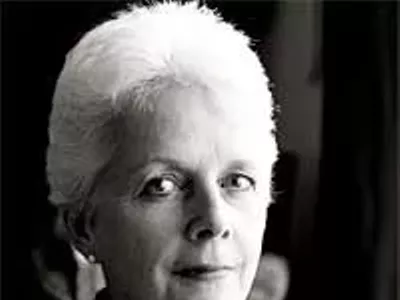
Audio By Carbonatix
[
{
"name": "GPT - Leaderboard - Inline - Content",
"component": "35519556",
"insertPoint": "5th",
"startingPoint": "3",
"requiredCountToDisplay": "3",
"maxInsertions": 100,
"adList": [
{
"adPreset": "LeaderboardInline"
}
]
}
]
Director Alejandro González Iñárritu has become the poster boy for a newly hip genre: the socially relevant, feel-bad, multicharacter mash-up. Iñárritu (working with screenwriter Guillermo Arriaga) has made three films in which seemingly unrelated characters are brought together by a horrible event or series of events: the Mexico City-set Amores Perros, the American 21 Grams and now the international Babel. In all of them, good people do bad things, preconceptions are shattered and lots of talented actors get to cry and scream their hearts out. The chronology may shift and the locations may change, but each film is a grim, densely populated opus with a grand, philosophical title that may or may not help you make sense of all the tortured souls on screen.
Also, at this point in his career, Iñárritu's contrivances are beginning to show. Babel is a film of often stunning beauty and power, marred by more than a few manipulative, implausible plot twists. The movie connects the dots among more than a dozen lives spread across the globe, brought together by a single gun shot. It's fired in Morocco by a couple of peasant boys, testing the capabilities of their father's shiny new hunting rifle. Using a tour bus for target practice, the boys unwittingly shoot Susan (Cate Blanchett), an American woman on vacation with her increasingly distant husband Richard (Brad Pitt, sporting some comb-in grey hair coloring).
Back at home in San Diego, Susan and Richard's precious, towheaded children are in the care of their live-in nanny Amelia (Adriana Barraza). Amelia has to attend her son's wedding in Tijuana, but won't leave the kids she calls her own with just anyone; hence, she phones her loose-cannon nephew (Gael García Bernal), piles the kids into his car and takes them along with her as she heads south of the border. Meanwhile, in Tokyo, Chieko (Rinko Kikuchi), a deaf-mute teenaged girl sick of being looked at like a "monster" begins flaunting her sexuality: first at her dentist, then a group of questionable boys, then at a police officer investigating her father.
Iñárritu keeps his cards close to his chest as he weaves these seemingly unrelated threads together. The chronology of the film is shuffled a little (although not to the extent of 21 Grams) so we often know what's going to happen before the characters do. The director's artful trickery keeps the focus on the characters' roiling emotional states: Pitt and Blanchett are in a state of panicked dread for most of the film, whereas the other lead performers simmer for a while before reaching a full boil.
Catching all of these wildly diverse people at their greatest moments of pain makes for awfully compelling viewing, and Iñárritu is a master at putting you in the shoes of his flawed heroes. When Chieko gets drunk and ventures into a nightclub with the bad boys from school, the director immerses the audience in a sea of color, light and music, only to have the sound drop out to illustrate the deaf girl's point of view.
But when the lights in the theater come up, a lot of the details in Babel don't hold up to any real scrutiny. This is a film where everyone, at every turn, will make the most wrong-headed decision possible, and Iñárritu dangles that dread in front of the audience like a carrot. To believe the various plot twists, your faith in the characters' good sense — something the writer and director cultivate in the early moments of the film — is betrayed time and time again. For a movie that's ostensibly about understanding and togetherness, you'd think the filmmakers would sacrifice some of the shocks for a little compassion.
Showing at the Main Art Theatre (118 N. Main St., Royal Oak; 248-263-2111).
Michael Hastings writes about film for Metro Times. Send comments to letters@metrotimes.com.





